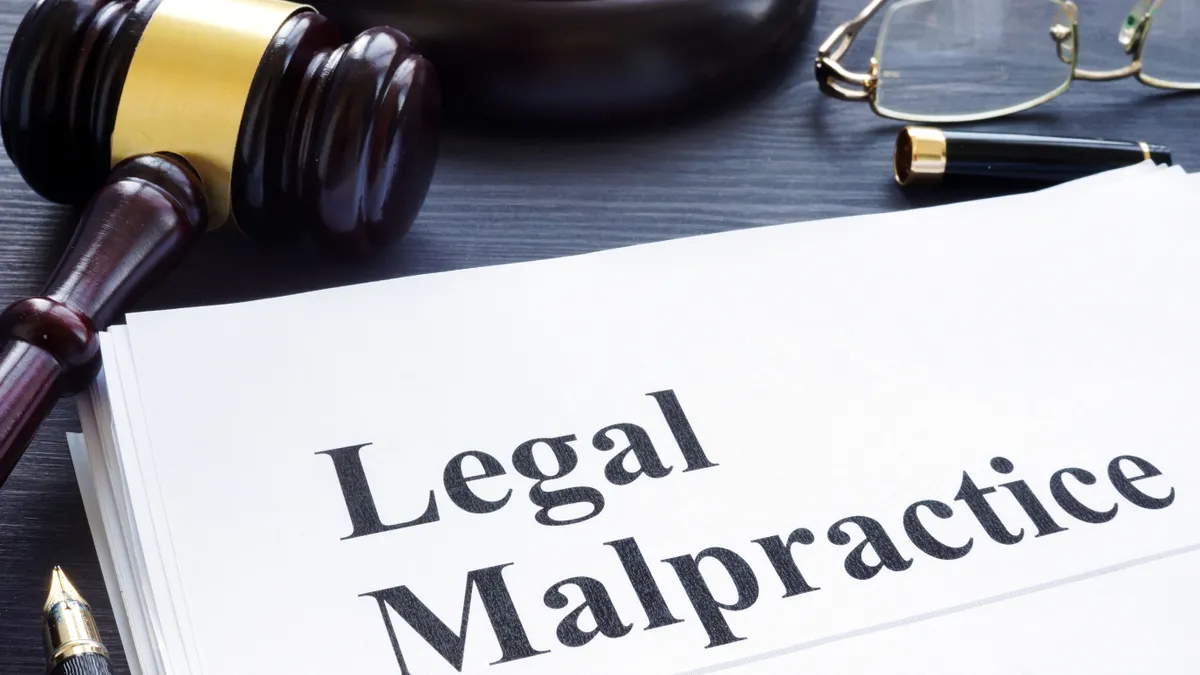Bill Zapf and Matt Kaiser are partners at Kaiser PLLC. Views are the authors’ own.
It’s a horrible feeling. You get a call from your outside counsel telling you that something went wrong. And, worse, it’s because the law firm you hired made a horrible mistake.
The case the firm is handling could be lost. Your company could be on the hook for a massive judgment, and it’s all because the law firm you trusted didn’t live up to that trust.
You may be angry. You may be scared. And you may wonder if you should sue the law firm.

We bring lawsuits against law firms that hurt companies through their malpractice or breaches of their fiduciary duties.
Here are four questions we discuss with potential clients when they’re thinking about suing their lawyer.
1. Is there enough money at stake?
Lawsuits are expensive, particularly against law firms. It’s wise to step back at the beginning and think about the end game.
What does the company stand to gain? What is the underlying lawsuit worth? Putting emotions aside, a lawsuit has to make economic sense.
In a malpractice case, the primary damages are what the lawyer’s mistake cost the company. Is it six figures or nine?
You might also recover the fees you paid to the law firm, which may be substantial. In any event, you want to figure out ahead of time if spending even more money is worth it.
2. Did the lawyer’s mistake really cause your damages?
Just as important as the magnitude of your damages is whether the lawyer’s mistake really caused those damages.

Although a lawyer may make mistakes, even egregious ones, little will come from it if those mistakes were not the thing that caused you damages.
If your company would have lost the case anyway, the lawyer’s malpractice didn’t cause it, and that can narrow the damages you can receive.
Most often this is determined by litigating the “case within a case.” To prove that a lawyer’s malpractice caused you to lose a case, you likely have to show it is more likely than not that your company would have won the case but for the mistake.
Depending on the complexity of the underlying case, that can sometimes be an uphill battle. You may be able to win other damages – like the fees you paid – but your overall recovery could be limited.
3. Are you willing to waive privilege?
If you sue your lawyer for malpractice, they have a right to defend themselves, and they may be able to reveal the confidences you shared with them to do so. So, you may waive the attorney-client privilege and work-product protections simply by filing the lawsuit.
Worse, the waiver may go beyond the particular advice at issue to the broader subject matter of that advice. This can be important.
For example, if the underlying litigation is ongoing, exposing privileged information could hurt your company even more than the lawyer’s mistake. Or you may not want that confidential information aired out publicly. Such tradeoffs are important to consider ahead of time.
4. Was your lawyer’s mistake just a bad judgment call?
To win a malpractice case, you need to prove that the lawyer’s services fell below the applicable standard of care. A lawyer is not liable for every mistake he or she may make.
Determining that standard of care is no small task and usually involves expert witnesses—usually lawyers who practice in the relevant field.
One way for a lawyer to win a malpractice suit in many jurisdictions is to show that the error was a professional judgment call.
Lawyers need to make judgment calls. Sometimes those calls are right, and sometimes they are wrong. When they are wrong, they may hurt the client, but if the lawyer exercised reasonable care, they may be excused.
Concluding thoughts
If a lawyer’s bad conduct harms your company, a malpractice suit may be a great way to make your company whole.
But sometimes a new lawsuit may be throwing good money after bad. The above questions are a good start to help decide which path is best.










